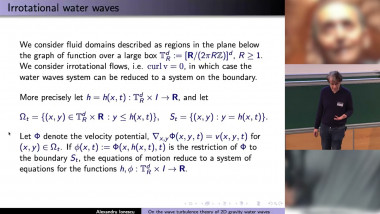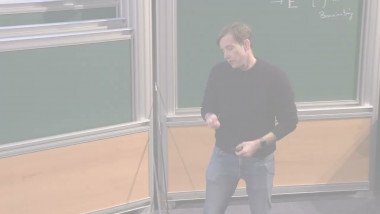
On the Wave Turbulence Theory of 2D Gravity Water Waves
De Alexandru Ionescu

Anomalous Diffusivity and Regularity for Random Incompressible Flows
De Scott Armstrong
Apparaît dans la collection : On Future Synergies for Stochastic and Learning Algorithms / Sur les synergies futures autour des algorithmes d'apprentissage et stochastiques
Extreme events are of primarily importance for understanding the impact of climate change. However, because they are too rare and realistic models are too complex, traditional deep neural networks are inefficient for predictions. We cope with this lack of data using rare event simulations. From the best climate models, we oversample extremely rare events and obtain several hundreds more events than with usual climate runs, at a fixed numerical cost. Coupled with deep neural networks this approach improves drastically the prediction of extreme heat waves.
